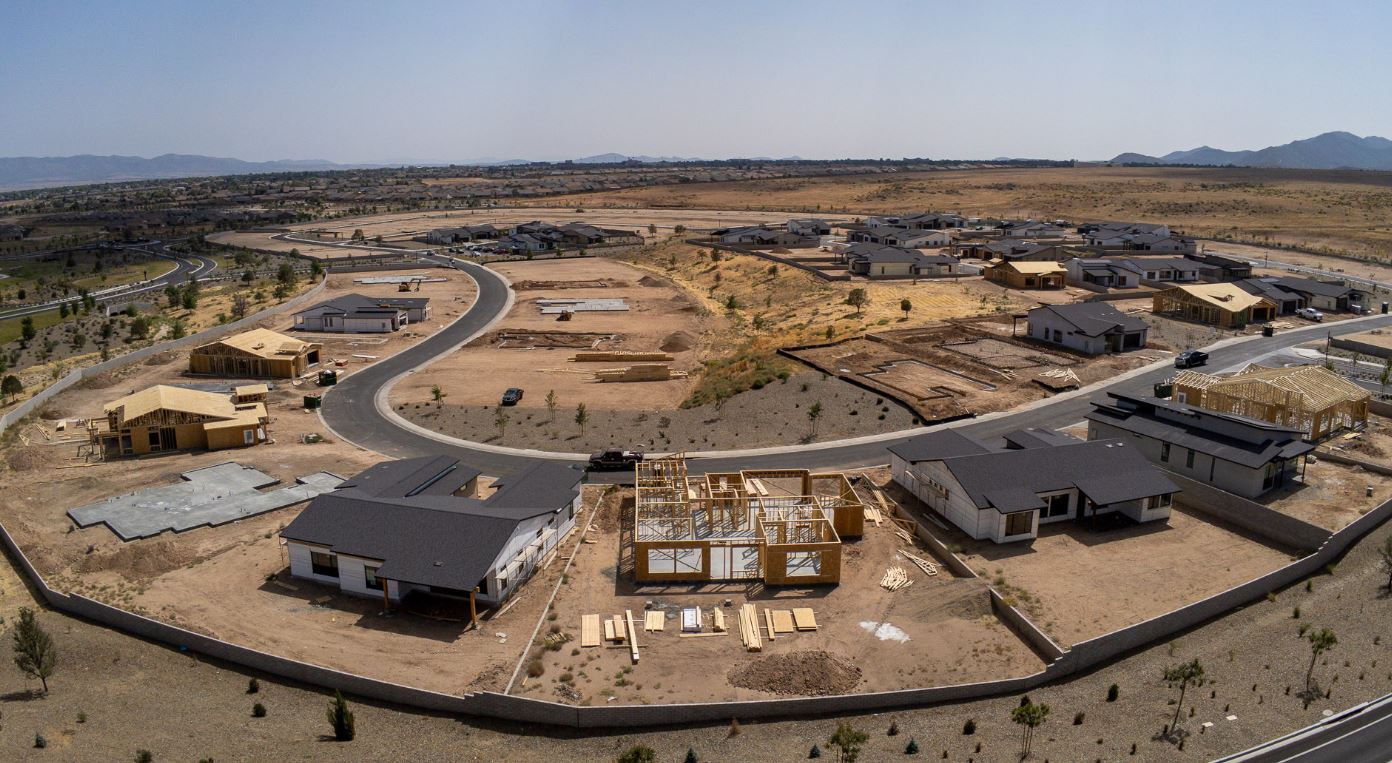Up for Growth, a cross-sector member network committed to solving the nation’s housing shortage and affordability crisis through data-driven research and evidence-based policy, today released a groundbreaking report that finds housing underproduction in California has reached 977,654 homes, an increase of 82 percent since 2012, ranking the state first in the United States in terms of the severity of its housing deficit. Arizona ranks No. 7 among state having the most severe housing underproduction.
Arizona went from adequate production in 2012 to having 108,564 (5.8% of total units) underproduced in 2019, according to the report.
READ ALSO: Arizona No. 2 for largest house price appreciation
Up for Growth’s 2022 Housing Underproduction in the United States is a first-of-its-kind longitudinal study tracking nationwide housing underproduction by county and metropolitan area – the most detailed analysis of local housing underproduction ever produced. By measuring the gap between the number of homes available versus those needed, Up for Growth identified a housing deficit in 47 states and the District of Columbia, and 169 metropolitan areas – finding that housing underproduction in the U.S. reached 3.8 million homes in 2019, up from 1.6 million in 2012.
“Up for Growth’s extensive research on housing needs across the U.S. supports my persistent work in Congress to build more and increase access to affordable housing,” said Rep. Scott Peters (CA-52). “Understanding the barriers to creating more affordable housing helps policymakers like me propose solutions that can foster life-changing opportunities for families. I thank Up for Growth for its commitment to data-driven research and policy work on this critical cause.”
“No other factor impacts Latino homeownership more than the low supply of housing,” said Noerena Limon of the National Association of Hispanic Real Estate Professionals. “We commend Up for Growth for this invaluable research. The compounding effect of underproduction is one of the biggest issues of our time and we urge policymakers to use this data as a roadmap and marker for addressing our nation’s housing supply shortage.”
“We’ve long known one of the core drivers of our region’s homelessness crisis is the lack of affordable housing,” said Maria Salinas of the Los Angeles Chamber of Commerce. “Eliminating barriers which inhibit economic equity, especially with something as integral as housing, is crucial to our economic recovery and will ensure the dignity and well-being of all of L.A.’s communities and communities around the world. With this data expounding upon the need for additional housing, it confirms the urgency for business leader’s and that we must turn this into action for the construction of new housing, to uplift our region, the state of California, and the nation.”
“This important research from Up for Growth shows that too few homes are produced in the United States, leading to higher costs to families and households,” said Colin Parent, Executive Director and General Counsel of Circulate San Diego. “This data shows that regions like San Diego need to reform our land use rules to allow for more homes and to reduce our high cost of living.”
In 2012, the nation’s affordability problem was concentrated on the coasts and in the Southwest. Today, 47 states and the District of Columbia have seen underproduction rise over the past seven years. The average U.S. state had a housing deficit of 79,000 homes. As a percentage of total housing stock, states with the most severe housing underproduction were, in order of severity: California, Colorado, Utah, Oregon, Washington, Washington DC, Arizona, Minnesota, New Jersey, and Massachusetts. New to the list since 2012 are six states: Nevada, Missouri, South Carolina, Rhode Island, Oklahoma, and Mississippi.

The report also includes a plan that quantifies the potential economic, fiscal, social and environmental benefits of building millions of new homes. A Better Foundation is Up for Growth’s new and innovative housing policy framework that can help policymakers craft tailored housing solutions to improve economic vibrancy and resiliency. Up for Growth data finds that building 3.8 additional homes would create increased housing affordability, add $209 billion to the U.S. GDP, generate $7 billion in additional local revenue, and reduce C02 emissions to the equivalent of 7.7 billion fewer miles traveled annually at full buildout.
“With the nation 3.8 million homes short of meeting housing needs, the U.S. is in an extreme state of housing underproduction,” said Mike Kingsella, Chief Executive Officer of Up for Growth. “Housing affordability is foundational for building and sustaining healthy local economies, and provides individuals and families with the stability necessary to invest in themselves and their communities. The Housing Underproduction report offers policymakers solutions to help create more homes while also improving equity, community resilience, and addressing drivers of climate change. It is vital that we act now to address America’s most urgent economic, environmental and social equity crisis.”




